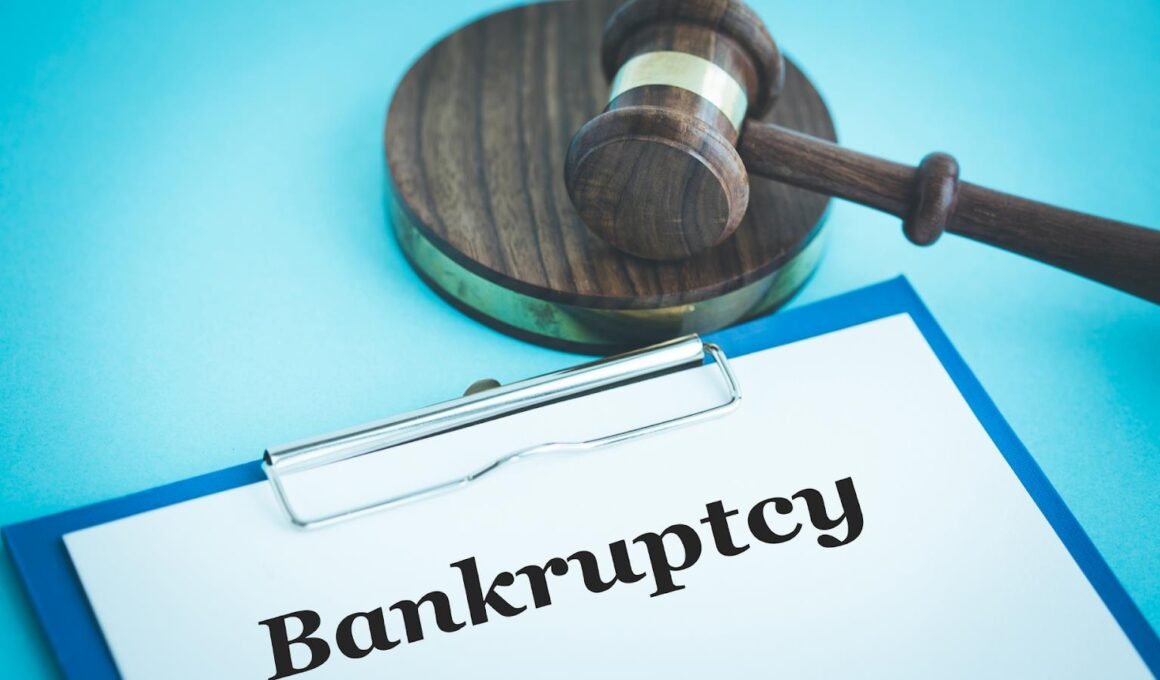Picture this: you open your paycheck stub and your heart drops. The number’s way smaller than expected. No warning. No heads up.
Welcome to the nightmare of wage garnishment laws – where creditors can literally reach into your paycheck and take what they want. Scary? Absolutely. But here’s what most people don’t realize: you’ve got more power than you think.
Millions of Americans face this exact scenario every year. One missed payment spirals into court orders that bleed your bank account dry, week after week. But – and this is important – you’re not stuck without options. Understanding your legal protections could be the difference between bouncing back and drowning financially.
Understanding Federal and State Wage Garnishment Laws
Let’s get real about what’s actually protecting your paycheck right now.
The Consumer Credit Protection Act (CCPA) throws up some serious roadblocks for creditors trying to empty your wallet. Federal wage garnishment laws cap most seizures at 25% of your disposable income. That means three-quarters of your earnings stay put, no matter how aggressive your creditors get.
Federal Wage Garnishment Protections Under the CCPA
Here’s where it gets interesting. The CCPA doesn’t just slap limits on garnishments – it actually defines what “disposable income” means in the first place.
Your taxes? Protected. Social Security contributions? Off-limits. Unemployment insurance? Can’t touch it. Only what’s left after these mandatory deductions gets counted for garnishment calculations.
Arizona-Specific Wage Garnishment Regulations
Arizona residents catch a break here. This protection works everywhere in America. Doesn’t matter if you’re in Phoenix or Portland – these federal limits have your back. The state follows federal rules but sweetens the deal with extra protection – exempting 75% of your disposable earnings from garnishment.
Living in Phoenix and dealing with financial chaos? These state-level protections often provide that extra breathing room you desperately need when collectors come knocking.
When you’re wrestling with Arizona’s complex wage garnishment laws, getting help from a Phoenix Bankruptcy Lawyer becomes absolutely critical for navigating both federal and state regulations successfully. These pros know exactly how local courts handle garnishment cases and can spot protection opportunities you’d never see coming.
Exempt Income Categories You Need to Know
Some income sources are completely bulletproof against private creditors. We’re talking Social Security benefits, disability payments, veterans’ benefits – these stay protected no matter what.
But here’s the catch: government agencies play by different rules. The IRS? They can absolutely garnish these “protected” sources for tax debts. Brutal, but true.
Maximum Garnishment Percentages by Debt Type
Not all debts are created equal when it comes to garnishment limits. Credit card debt? That 25% cap applies. Child support? Courts can go much higher.
Knowing these distinctions helps you build the right defense strategy before it’s too late.
Understanding your rights is crucial, but knowing exactly how creditors execute these garnishment orders. That’s where you find the critical intervention points that could save your financial life.
The Complete Wage Garnishment Process Timeline
Think of this timeline as your battle map. Each stage offers opportunities to fight back – but only if you know what you’re looking for.
Pre-Garnishment Notice Requirements
Most creditors have to give you a written heads-up before they start garnishing. This notice period? That’s your golden window for negotiation or bringing in legal reinforcements.
Miss this opportunity, and you’re facing garnishment without any preparation. Not good.
Court Judgment Procedures
Here’s something most people don’t realize: creditors usually need court judgments before they can touch your wages. They have to file lawsuits, serve you papers, and get favorable court orders.
Every single step gives you chances to challenge them or hammer out settlements. The key is acting fast.
Employer Notification and Compliance Obligations
Once that garnishment order hits your employer’s desk, compliance becomes mandatory. They have to withhold the specified amounts and forward payments to creditors or courts.
Understanding what your employer must do helps ensure they’re handling your garnishment properly.
Your 10-Day Challenge Window
Most states give you a brief window – usually about 10 days – to challenge garnishment orders after they’re served. Acting within this timeframe can prevent or dramatically reduce garnishment amounts.
But knowing which creditor is coming after your wages? That determines which emergency strategies will actually work in your situation.
Types of Creditors Who Can Garnish Your Wages
Credit Card Companies and Medical Debt Collectors
Private creditors like credit card companies must get court judgments before garnishing wages. No shortcuts here.
Medical debt? That’s becoming a massive threat. More than 40 percent of adults have health care debt to providers, on credit cards, or owed to family. These debts frequently lead to aggressive collection tactics, including garnishment.
IRS Tax Debt Garnishments (No Court Order Required)
The IRS operates under completely different rules. They can garnish your wages directly without court orders. Tax levies can seize huge chunks of your paycheck, leaving minimal amounts for basic living expenses.
This situation demands specialized defense strategies, period.
Student Loan Garnishment Powers
Federal student loans pack unique garnishment powers. The Department of Education can garnish wages administratively – no courts involved.
Private student loan companies? They still have to follow standard court procedures.
Child Support and Alimony Enforcement
Family support obligations carry the highest garnishment limits. Courts prioritize children’s welfare over your financial stability, creating particularly tough situations.
Emergency tactics provide temporary relief, but bankruptcy and wage garnishment protection offer the most comprehensive and permanent solution for qualifying individuals.
Emergency Strategies to Stop Wage Garnishment Immediately
Automatic Stay Protection Through Bankruptcy Filing
Filing bankruptcy triggers automatic stays that immediately stop most garnishment activities. Think of it as hitting a legal emergency brake.
This protection gives you breathing room while addressing underlying debt problems through structured legal processes.
Negotiating Payment Plans Before Court Orders
Proactive communication with creditors before garnishment orders can prevent wage seizure entirely. Many creditors prefer guaranteed monthly payments over uncertain garnishment collections.
Makes sense from their perspective – guaranteed money beats maybe money every time.
Hardship Exemption Applications
Most states allow hardship exemptions for people facing severe financial difficulties. These applications require detailed financial documentation but can reduce or eliminate garnishment amounts.
Worth the paperwork if you qualify.
Head of Household Claims and Protections
Supporting family members may qualify you for additional garnishment protections. Head of household status often increases exempt income amounts significantly.
Beyond bankruptcy’s automatic stay protection, several sophisticated legal defenses can permanently eliminate garnishment orders without bankruptcy filing.
Bankruptcy and Wage Garnishment: Your Legal Shield
Chapter 7 Bankruptcy for Immediate Garnishment Relief
Chapter 7 bankruptcy provides a swift discharge of most unsecured debts, permanently ending related garnishment threats. The process typically wraps up within four to six months for qualifying debtors.
Fast relief when you need it most.
Chapter 13 Repayment Plans vs. Continued Garnishment
Chapter 13 creates court-supervised repayment plans that replace chaotic garnishment schedules. You gain control over payment timing and amounts while protecting remaining income.
Much better than letting creditors call the shots.
Discharge Options for Different Debt Types
Understanding which debts qualify for discharge helps determine whether bankruptcy will effectively stop wage garnishment in your specific situation. Most consumer debts receive discharge protection, but certain obligations, like support payments, continue.
Post-Bankruptcy Garnishment Protections
Completing bankruptcy creates lasting protection against discharged debts. Creditors attempting post-discharge garnishment face court sanctions and potential liability.
Understanding these legal defenses matters, but you also need to know your employer’s obligations and workplace protections to ensure proper garnishment handling.
Selecting the Right Wage Garnishment Attorney
Bankruptcy Lawyer vs. General Practice Attorney
Wage garnishment attorney specialization makes a massive difference when facing complex debt collection situations. Bankruptcy lawyer expertise provides comprehensive debt relief strategies beyond simple garnishment challenges.
Phoenix-Area Specialization Benefits
Local legal knowledge proves invaluable when navigating Arizona’s specific garnishment laws and court procedures. Regional attorneys understand judicial preferences and know which argument strategies actually work in local courts.
Fee Structures and Payment Options
Many bankruptcy attorneys offer flexible payment arrangements for clients facing garnishment. Understanding fee structures upfront prevents surprises during already stressful financial situations.
Client Success Rate Evaluation Methods
Research attorneys’ track records in garnishment and bankruptcy cases. This helps identify the most effective representation for your specific circumstances.
Once you’ve secured proper legal representation and stopped garnishment, focus shifts to rebuilding your financial foundation and preventing future wage seizures.
Your Path Forward from the Wage Garnishment Crisis
Wage garnishment laws create both challenges and opportunities for debt relief. Understanding federal protections, state exemptions, and bankruptcy solutions empowers you to reclaim financial control.
Swift action prevents further income loss. Comprehensive legal strategies address underlying debt problems permanently. The combination of immediate garnishment relief and long-term debt discharge makes bankruptcy consultation essential for anyone facing wage seizure.
Don’t let creditors drain your paycheck – legal protection exists, and experienced attorneys can help you claim it. Your financial recovery starts with one phone call.
Common Questions About Wage Garnishment Defense
- Do I need a lawyer to stop wage garnishment?
While not legally required, attorney representation significantly improves success rates. Complex garnishment laws and bankruptcy procedures require specialized knowledge for optimal outcomes.
- Can employers fire me for wage garnishment?
Federal law prohibits employer retaliation for single garnishments. However, multiple garnishments may jeopardize employment relationships despite legal protections.
- How quickly can bankruptcy stop ongoing garnishment?
Bankruptcy filings trigger immediate automatic stays, typically stopping garnishment within 24-48 hours of filing. Timing depends on court processing and creditor notification procedures.



